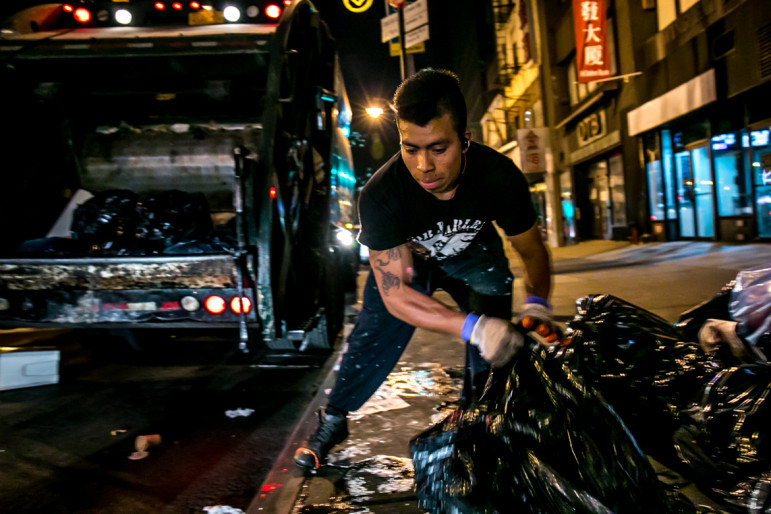
Adi Talwar
A 2013 report by the Bureau of Labor Statistics listed waste collection as one of the most dangerous jobs in the country.
In recent weeks, the reckless and negligent operations of New York City’s private waste haulers have finally gotten the attention they deserve, including the awful working conditions these companies force on their largely immigrant, Latino, and Black workforce.
ProPublica published a shocking exposé revealing how some of the worst actors operate. The publication highlighted Sanitation Salvage, a Bronx-based private carter that, in less than six months, was responsible for the deaths of two men in truck crashes. Additionally, Sanitation Salvage allegedly engaged in a cover-up to hide that one of the victims was actually an employee.
With all of this information coming to light, we as elected officials can no longer sit idly by.
While the media’s eye is drawn to the most reprehensible violations, these same companies impact the daily lives of low-income communities and communities of color. The vast majority of private waste transfer stations, waste company garages, and truck depots are located in Southeast Queens, the South Bronx and North Brooklyn.
Southeast Queens is where I live with my family, and whose residents I represent on the New York City Council. I see firsthand how the truck traffic and facility operations pose daily threats to our public safety, quality of life and the health of our children and seniors. I witness how diesel exhaust exacerbates asthma and increases respiratory illness in my community.
On a daily basis, I hear the rumbling of waste and construction trucks racing to dump their loads in Southeast Queens. I feel these impacts, and I see the impacts on my community and on my constituents.
This is why I have been one of the most ardent supporters of the Waste Equity Bill in the City Council. This bill, Intro 157, which has been around in some form for more than a decade, proposes to cap the amount of waste that can be processed at the facilities in our city’s most overburdened neighborhoods.
In Southeast Queens—and in the South Bronx—facilities would have their permitted capacity, or the total maximum amount of waste they are allowed to receive, reduced by 33 percent. In North Brooklyn—where almost 40 percent of the city’s waste is processed—the permitted capacity at facilities would be cut by 50 percent. Citywide, the Waste Equity Bill would cap the total amount of waste to be processed in any community district to no more than 10 percent of the entire city’s waste, preventing other communities from ever having to endure what mine has had to for decades.
This bill has the support of labor. The Teamsters, who represent both private and public sanitation workers and whose members live in the overburdened communities, have been fierce supporters of waste equity. It also has the support of community and environmental organizations throughout the City, especially those based in the waste-burdened neighborhoods. It also finally has the support of enough City Council members that we hope to turn this possibility for real environmental justice into a reality when we vote on Intro 157 this week.
It is high time that we hold the private sanitation companies responsible not only for their awful practices when collecting waste, but also when dumping and processing waste. The Waste Equity Bill is the first step towards bringing true accountability to an industry in desperate need of reform.
Donovan Richards is the Councilmember for the 31st district, representing Arverne, Brookville, Edgemere, Far Rockaway, Laurelton, Rosedale and Springfield Gardens.







